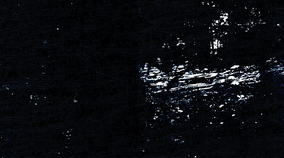Manami Nagahari
Born in 1969 in Niigata, in north-west Japans and grown up there, Manami N. developed her musical interest already in early days when she played trumpet and later trombone in school bands. After her university studies in pedagogic, Manami N. moved to Tokyo at that time still working for a construction company. She was introduced to Kumiko Hara(1954-2005), with whom she took voice training and music theory classes. Hara studied at Tokyo Collage of Music and was well known as a blind Jazz and Soul singer during the 1970’s and 1980’s. While working as a computer instructor Manami N. performed with various jazz oriented pop bands. At that time she also started to study and experiment with musical software on her computer and wrote her first songs. The first collaboration pieces were created with Kenji Yamazaki, Mark Corrin, triPhaze aka Marek Brandt. In 2006 she moved to Berlin. Here her approach to music became more conceptual. As she originally comes from a family of Zen-Buddhist monks her philosophy is strongly based on her personal experiences. Her collage-like style of composing is developing in an eclectic manner – sometimes using electronic sounds, text, noise or even traditional Japanese instruments. As strong as the experimental aspect is important for her works there is also her interest in the universality of being human. This attitude reflects what D. T. Suzuki who has taught John Cage Zen philosophy, wrote: “Zen is the religion of jiyū ( self-reliance,自由) and jizai (self-being,自在), its concentration on the spirit leads to the neglect of form. Or rather it detects in form of any description the presence of the spirit.” After the catastrophe at the Fukushima Nuclear power plant in 2011, her artistic focus turned to more political subjects and notions of social relevance. Like for most of Japanese artists, this highly emotional charged theme is difficult to deal with – how to react properly ? Should anger or sadness be expressed? Manami N.’s way of dealing with those political themes is like putting all those emotions in a very cold way into a technical concept box. Each sound, every material is carefully selected and structured under a strong concept or a polyfocal narrative.





